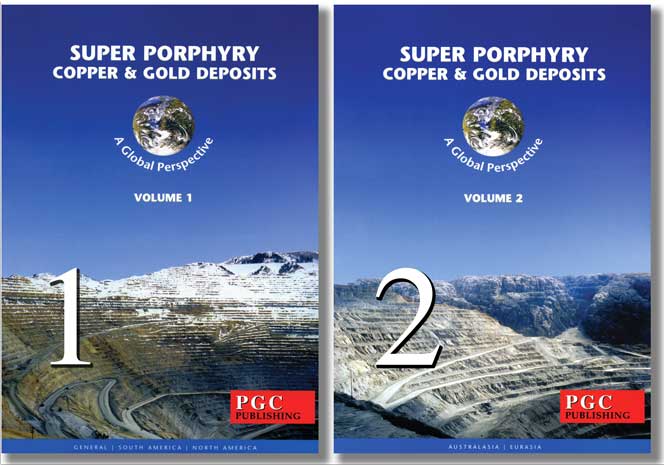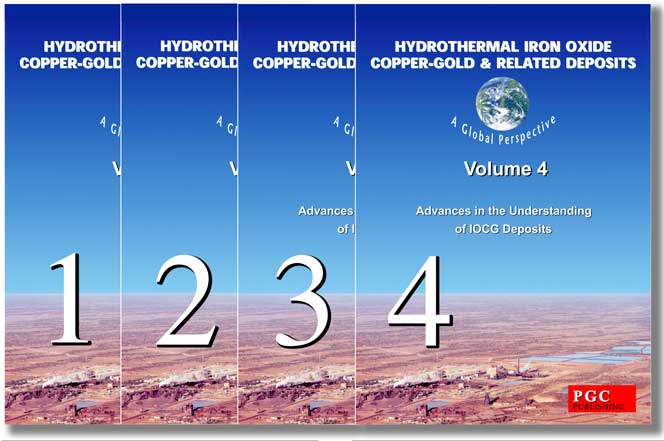|
Duluth Complex - Babbitt, Minnamax, Mesaba Project |
|
|
Minnesota, USA |
| Main commodities:
Ni Cu PGE PGM
|
|
 |
|
 |
 |
Super Porphyry Cu and Au


|
IOCG Deposits - 70 papers

|
All papers now Open Access.
Available as Full Text for direct download or on request. |
|
 |
The Babbitt copper-nickel deposit, or Mesaba Project, (formerly known as Minnamax) is located ~10 km SSE of the township of Babbitt and 94 km NNE of Duluth in Minnesota, USA (#Location: 47° 38' 32"N, 91° 52' 54"W).
The deposit was first discovered by Bear Creek Mining Company in 1957. Some 204 surface holes were drilled between 1958 and1960 and 1967 to 1971. In 1974, AMAX Inc. and Kennecott began a joint venture to develop the property, drilling 228 more surface holes, and sinking a 520 m deep exploratory shaft, 1100 m of drifting at the 520 m level, and 219 underground drill holes. This work showed that the deposit occurs over a strike length of ~6000 m, width of 115 m and thickness of up to 100 m. AMAX exited the joint venture in 1978, and Kennecott relinquished their leases in 1988. Sporadic exploration has taken place since by a number of parties.
For details of the setting and geology of the Duluth Complex, see the separate Duluth Complex Overview record.
The Babbitt deposit is hosted by the troctolitic Layered Series of the Partridge River Intrusion, <10 km NE of the Northmet deposit, and is the northeastern most deposit in that intrusion. It differs for the Dunka Road deposit in that Babbitt has more massive sulphides and more platinum group elements. The host Layered Series at Babbitt is divided into 7 units as described for the Northmet deposit. As at NorthMet, mineralisation is largely restricted to Unit 1.
At the Babbitt deposit, both disseminated (mainly cubanite with lesser chalcopyrite) and massive sulphide mineralisation (pyrrhotite, cubanite, chalcopyrite and minor pentlandite) are found at the basal contact with the Palaeo- to Mesoproterozoic pelitic meta-sediments which have sporadic calcareous units. Mineralisation at Babbitt also occurs 300 to 500 m higher in the complex in association with abundant xenoliths of country rock. This second zone is known as the "Cloud Zone" and is not reported from elsewhere in the district.
Higher grade (>1% Cu) occurs near the basal contact of the meta-sediments, while much of the high grade semi-massive sulphide is found in the adjacent hornfelsed sediments or is spatially associated with the hornfels. Disseminated sulphides (2 to 5%) are also found in troctolites and norites around the semi-massive ores. Sulphide contents decrease above the basal zone, but increase again in the "Cloud Zones".
The Babbitt deposit / Mesaba Project is said to contain >1 Gt @ 0.57% Cu, 0.14% Ni.
In addition to the larger tonnages of disseminated mineralisation, Babbitt includes 4.5 Mt @ 1.9% Cu, 0.6% Ni as a massive sulphide body predominantly within the footwall sediments.
For detail see the reference(s) listed below.
The most recent source geological information used to prepare this decription was dated: 2000.
This description is a summary from published sources, the chief of which are listed below.
© Copyright Porter GeoConsultancy Pty Ltd. Unauthorised copying, reproduction, storage or dissemination prohibited.
Minnamax
|
|
|
|
|
Arcuri T, Ripley E M 1998 - Sulfur and Oxygen isotope studies of the interaction between pelitic xenoliths and basaltic magma at the Babbitt and Serpentine Cu-Ni deposits, Duluth Complex, Minnesota: in Econ. Geol. v93 pp 1063-1075
|
Begg, G.C., Hronsky, J.A.M., Arndt, N.T., Griffin, W.L., O Reilly, S.Y. and Hayward, N., 2010 - Lithospheric, Cratonic, and Geodynamic Setting of Ni-Cu-PGE Sulfide Deposits: in Econ. Geol. v.105, pp. 1057-1070.
|
Chandler V W 1990 - Geologic interpretation of gravity and magnetic data over the central part of the Duluth Complex, northeastern Minnesota: in Econ. Geol. v85 pp 816-829
|
Chandler V W, Ferderer R J 1989 - Copper-Nickel mineralization of the Duluth complex, Minnesota - a gravity and magnetic perspective: in Econ. Geol. v84 pp 1690-1696
|
Queffurus M and Barnes S-J, 2014 - Selenium and Sulfur Concentrations in Country Rocks From the Duluth Complex, Minnesota, USA: Implications for Formation of the Cu-Ni-PGE Sulfides : in Econ. Geol. v.109 pp. 785-794
|
Ripley E M 1990 - Se/S ratios of the Virginia Formation and Cu-Ni Sulfide mineralization in the Babbitt area, Duluth Complex, Minnesota: in Econ. Geol. v85 pp 1935-1940
|
Ripley E M 1990 - Platinum-group element geochemistry of Cu-Ni mineralization in the basal zone of the Babbitt Deposit, Duluth Complex, Minnesota: in Econ. Geol. v85 pp 830-841
|
Ripley E M, Al-Jassar T J 1987 - Sulfur and Oxygen isotope studies of melt-country rock interaction, Babbitt Cu-Ni deposit, Duluth comples, Minnesota : in Econ. Geol. v82 pp 87-107
|
Ripley E M, Butler B K, Taib N I, Lee I 1993 - Hydrothermal alteration in the Babbitt Cu-Ni deposit, Duluth Complex: mineralogy and Hydrogen isotope systematics: in Econ. Geol. v88 pp 679-696
|
Ripley E M, Taib N I, Li C and Moore C H, 2007 - Chemical and mineralogical heterogeneity in the basal zone of the Partridge River Intrusion: implications for the origin of Cu-Ni sulfide mineralization in the Duluth Complex, midcontinent rift system : in Contrib. to Mineralogy & Petrology v154 pp 35-54
|
Severson M J, Miller J D, Peterson D M, Green J C and Hauck S A, 2002 - Mineral potential of the Duluth Complex and related intrusions: in Miller J D, et al., (Eds.), 2002 Geology and Mineral Potential of the Duluth Complex and Related Rocks of Northeastern Minnesota Minnesota Geological Survey Report of Investigations 58 pp 164-200
|
|
Porter GeoConsultancy Pty Ltd (PorterGeo) provides access to this database at no charge. It is largely based on scientific papers and reports in the public domain, and was current when the sources consulted were published. While PorterGeo endeavour to ensure the information was accurate at the time of compilation and subsequent updating, PorterGeo, its employees and servants: i). do not warrant, or make any representation regarding the use, or results of the use of the information contained herein as to its correctness, accuracy, currency, or otherwise; and ii). expressly disclaim all liability or responsibility to any person using the information or conclusions contained herein.
|
Top | Search Again | PGC Home | Terms & Conditions
|
|